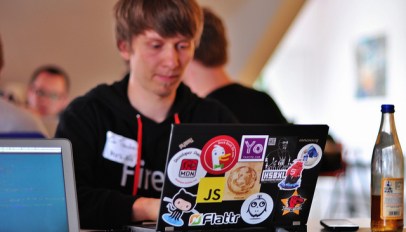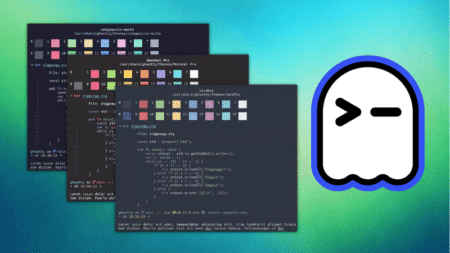GitHub (and thus its owner, Microsoft) is calling for a new EU tech fund to ensure critical open source software can be maintained.
Its proposal, detailed in a report, stresses that our the economy relies on open source software (OSS) for digital infrastructure, but that maintenance ‘continues to be underfunded, especially when compared to physical infrastructure like roads or bridges’.
GitHub’s research says 96% of all codebases contain open source code, and OSS contributes an estimated $8.8 trillion to the global economy.
Yet, most open source projects get little-to-no funding. A third of projects, many linchpin dependencies in billion-dollar operations, are maintained by just a single person. Others get by on drive-by donations and volunteer contributors – goodwill for the greater good.
Given how widely many OSS components are, and how vulnerable they are to developer burnout, abandonment, or socially-engineered hijacking, the costs in not ensuring open source is in a healthy states are, in a sense, greater.
Infrastructure underpinning day-to-day life, powering the modern economy, balances on precarious foundations. Sustainable open source maintenance will ensure ongoing improvements and all-important security diligence for everything resting on top.
A Sovereign Tech Fund for Europe
The solution, per Github’s report, is to scale up Germany’s Sovereign Tech Fund (STF) to a pan-European level.
Regular readers will be familiar with the STF since it has, in recent years, provided money to fund important initiatives within the GNOME project, ranging from accessibility work to new privacy and wellbeing features on the desktop.
This proposed EU-STF would give cash to widely-used, critical components to help sustain and support open source maintenance.
GitHub’s report recommends a starting budget of €350 million carved out of the bloc’s 2028-2035 budget, and using the money to action 5 key areas:
- Identifying the EU’s most critical open source dependencies
- Investments in maintenance
- Investments in security
- Investments in improvement
- Strengthening the open source ecosystem
The funding would require the creation of a new, centralised EU institution (a ‘moonshot model’), or a group of EU member states willing to provide initial funding and then seek further resources from the EU budget (a ‘pragmatic model’).
As GitHub itself puts it: “The flip side of everybody benefiting from this open digital infrastructure is that too few feel responsible for paying the tab.”
The proposed fund would be directed at the ecosystem’s most critical, underfunded dependencies
Cold hard cash is the answer, and GitHub thinks the European Union should step in to spend public money to fill in the OSS funding gap.
Others in the Linux community already take a more direct approach.
Canonical is donating £120,000 in 2025 to the smaller open source projects it relies on to maintain the infrastructure, tooling and triage mechanisms in Ubuntu and adjacent projects.
The GitHub Secure Open Source Fund (and formerly, Microsoft’s FOSS Fund) do similar things.
The proposed EU-STF fund would not be a free-for-all (you couldn’t pitch a desktop widget and expect a wedge of polymer in return). Rather, it’d be strategically directed at the ecosystem’s most critical, underfunded dependencies for maintenance, security and improvement.
Github suggests the EU-STF start with a €350 million pool, but adds that this amount “…would not be enough to meet the open source maintenance need”, merely “form the basis for leveraging industry and national government co-financing that would make a lasting impact.”
While €350 million is a huge portion of EU’s budget it is veritable chump-change if viewed against the profits that big tech companies—remember those stats from earlier—generate each year.
Funding is important, but so is who funds it
I don’t disagree with the idea of funding OSS with public money since it open source is a public good. And the idea that a co-ordinated, centralised and (ideally) transparent funding process is needed is, to my mind, the logical approach – no self-beneficial backhanders.
But the cynic inside me is giving this proposal some side-eye.
If open source gets funding from the EU, it must happen lock-step with the EU pushing for adoption of open source in the public sector
Microsoft, like all of the big tech giants, relies heavily on OSS to keep its own profits ever-inflating. The idea that national governments—i.e., taxpayers—must stump up “or else” is a little (pardon the pun) rich given the rich benefit from them doing so.
The Scrooge McDuck money pits were dug out with the labour of hundreds of thousands of open source developers, and each coin clattering down to fill it up part-earned in the same way.
Open source maintainers deserve monetary support. Absolutely. It is vital that valuable talent and critical software is rewarded. I worry the creation of an EU fund at the behest of big tech might be a way for big tech to offload its own responsibilities to fund OSS.
So if open source is to get sustainable funding from the EU, it should happen in lock-step with the EU pushing the use of open-source in the public sector. This fund shouldn’t act as a sleight-of-hand subsidy for big tech to coast on.
What’s interesting from its blog post is that GitHub (and Microsoft) is not paying lip service to this idea. It’s pushing for it. It plans to meet with EU legislators to advocate for such a fund, and warn of the risks of inaction in not creating one soon.
Something has to be done, and an EU Sovereign Tech Fund is one way to address it — but those who milk the community cow for profit ought to pay most for its feed.
You’re reading GitHub Wants the EU to Fund Open Source, a blog post from OMG! Ubuntu. Do not reproduce elsewhere without permission.
Source: Read More


